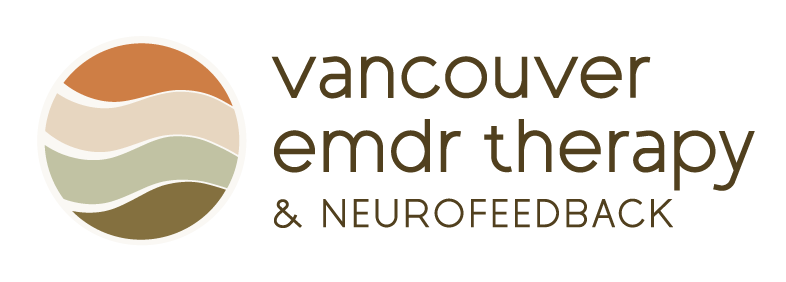 Our bodies and brains have a natural innate intention to heal. Our physiology is designed to recover from physical illness and emotional stress and return to equilibrium. An example of this is when we cut our finger. We do not have to tell our body to repair the cut it will do it automatically without us even thinking about it. Another way we heal is when we sleep. When we sleep, we go in to REM (Rapid Eye Movement). During REM our brains process the days events and we can wake up feeling better about what has happened or at least less stressed and more resolved. This is our brains natural tendency to heal.
Our bodies and brains have a natural innate intention to heal. Our physiology is designed to recover from physical illness and emotional stress and return to equilibrium. An example of this is when we cut our finger. We do not have to tell our body to repair the cut it will do it automatically without us even thinking about it. Another way we heal is when we sleep. When we sleep, we go in to REM (Rapid Eye Movement). During REM our brains process the days events and we can wake up feeling better about what has happened or at least less stressed and more resolved. This is our brains natural tendency to heal.
Unfortunately, there are times when our body and our brain are not able to fully recover from a stressor and need some help from us. PTSD, trauma and chronic stress can affect our nervous system. One of the areas it can affect the most is our Central Nervous System or (CNS). The CNS is the part of our body that is covered with bone. This includes our brain, our heart and our organs. Neurofeedback and EMDR therapy combined can help to “jump start” our innate healing response and allow our body and brain to recover from Post-Traumatic Stress Disorder (PTSD). Neurofeedback and EMDR therapy are natural non-invasive therapies that help people to not just live better but to thrive.
Neurofeedback is a form of biofeedback which is a process that provides information directly to the brain and helps it to readjust. Neurofeedback directly effects the brain and brain waves that have become dis-regulated due to chronic stress or PTSD. Neurofeedback sends a signal to the brain waves similar to putting a mirror to the brain and showing the brain what it is doing so that it can take that information and self-correct. Neurofeedback helps to change brain wave patterns allowing clients to get “unstuck” in their ruminating thoughts, worries, anxiety, flashbacks and obsessive thinking. It helps to change the brain waves associated with depression and an overactive or under-active brain. It allows people to feel calmer, happier and more at ease.
Eye Movement Desensitization Reprocessing (EMDR) is a type of psychotherapy especially designed to help people heal from trauma or other distressing life events. EMDR uses eye movements or other bilateral stimulation to help people process disturbing memories. It works with the brain and the way memories are stored. EMDR processes the traumatic material including the image, negative thoughts about oneself, emotions and body sensations that are tied with the memory. Once the memory and the associated sensations are processed then a person is no longer consciously or unconsciously re-living the experience. People will report nightmares stopping, sleep improving, improved self-esteem, reduced shame and isolation as well as many more benefits.
Neurofeedback has been around since the 1970’s and EMDR therapy since the mid 1980’s. As we learn more and more about the brain, we know that research is building to support the efficacy of these two therapies. Combining Neurofeedback and EMDR therapy is a dynamic duo in the treatment of PTSD and chronic stress conditions.
 Using the two together can make a dramatic difference in people’s lives. It can even be a “game changer” to those who have not responded to other forms of psychotherapy or medications for their symptoms. LENS (Low Energy Neurofeedback System) can be provided in a short period of time anywhere from a couple of seconds to 10-15 minutes. Because it is short and quick acting EMDR therapy and Neurofeeback can be provided in the same session. LENS Neurofeeback calms the nervous system which can allow a client to better receive EMDR therapy. In addition, LENS Neurofeedback can also provide a grounding effect which can allow a client to stay in the “window of tolerance” to tolerate trauma treatment and EMDR therapy. In addition, both therapies can be provided at separate times as well.
Using the two together can make a dramatic difference in people’s lives. It can even be a “game changer” to those who have not responded to other forms of psychotherapy or medications for their symptoms. LENS (Low Energy Neurofeedback System) can be provided in a short period of time anywhere from a couple of seconds to 10-15 minutes. Because it is short and quick acting EMDR therapy and Neurofeeback can be provided in the same session. LENS Neurofeeback calms the nervous system which can allow a client to better receive EMDR therapy. In addition, LENS Neurofeedback can also provide a grounding effect which can allow a client to stay in the “window of tolerance” to tolerate trauma treatment and EMDR therapy. In addition, both therapies can be provided at separate times as well.
If you would like to learn more about how LENS Neurofeedback and EMDR therapy can help you please click here or call 360-521-4500 for more information or set up a free 10 minute inquiry phone call.




